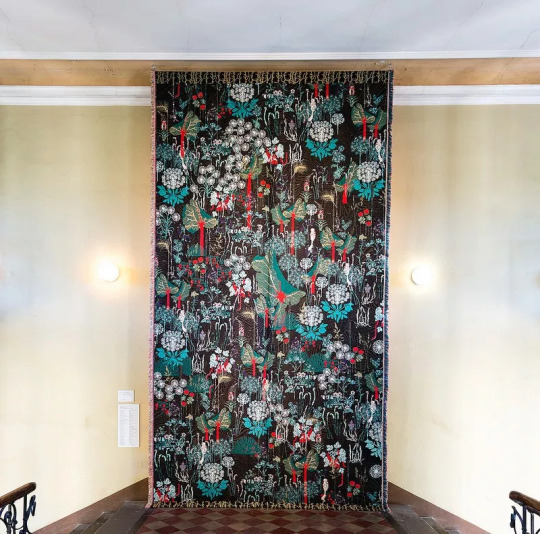#How to use 'innovation waves' to reduce the racial wealth gap
Explore tagged Tumblr posts
Text
'Innovation waves' can reduce the racial gap - Boston Business Journal
Recognizing that not everyone will be a founder, we also need to leverage innovation waves to change our workforce development strategy. In the past, the state used data from the Bureau of Labor Statistics for its employment and job forecasting. These forecasts told us the jobs in Boston were in relatively low-paying fields, such as food service and hospitality. Such jobs might require the city to invest in affordable housing for low-wage workers, and they won’t help reduce the racial wealth gap.
Instead, we need to provide vocational training for jobs in the innovation wave sectors. Boston has several college-behind-bars programs that could focus on these fields, and since many jobs in these fields can be done remotely, students could start work while incarcerated and already have jobs upon release. Jobs that can be done remotely are ideal for those with criminal records.
Bussgang emphasizes that Boston already has the businesses of the future, the colleges and universities to seed them, and over $120 billion of VC capital under management. Now is the time to take action that will enable us to funnel a significant portion of the projected $200 trillion value increase toward reducing the racial wealth gap in the greater Boston area and throughout Massachusetts.
#How to use 'innovation waves' to reduce the racial wealth gap#boston#vc#vc investment#student balue#affordable living#living wages
2 notes
·
View notes
Text
#RadThursdays Roundup 02/21/2019

The cover of Out magazine's March issue, which features five Black queer and trans women: Miss Major Griffin-Gracy, Barbara Smith, Tourmaline, Alicia Garza, and Charlene Carruthers. They sit and pose on colorful, plush furniture while wearing jewel-colored, draped dresses. Source.
Issues
Since Parkland: 12 months: "1,200 American kids killed by guns. 1,200 stories about the lives they led, reported by teen journalists across the country."
Unzuck Your Life: A Post-Facebook Vision for Online Organizing: "Leitch and Sauter underscore that Facebook is a monopoly whose staying power is in large part due to its ability to undercut competitors by quickly cloning their innovations. The fact that it could almost effortlessly frustrate attempts to stop its dominance is one reason it’s so difficult to imagine viable alternatives for organizing and mobilizing. But though Facebook may be great at helping people organize international marches, email can be just as effective for local grassroots organizing—and unlike Facebook, email is federated, meaning your personal data is protected there in ways it isn’t on Facebook."
Reparations
Race, Class, and Reparations: "To talk about wealth redistribution, to talk about rich people being forced to pay higher taxes, when we talk about all these ways of being equitable but we’re not specifically talking about the ways that Indigenous people deserve certain kinds of reparations, the way that Black people deserve certain kinds of reparations – we’re not having a good or useful or full conversation about what wealth redistribution needs to look like in this country."
Beyond the Rising Tide: Reparations for Slavery Have to Be More Than a Symbol: "It would take an estimated 228 years for black Americans to earn as much wealth as white Americans possess today, at which point blacks still would not have drawn even, because whites would presumably have accrued more wealth during that time as well. Simply put, closing the racial wealth gap demands a systemic approach."

Article One of the Universal Declaration of Human Rights in Inuktitut, one of the principal Inuit languages of Canada. Carving by Tim Brookes. Source.
Indigenous Land
White Words: “Eskimos Have Fifty Words for Snow” is an amazing phrase, because every word in it is wrong.
A New Wave of Attacks on Brazil's Amazonian Indigenous Communities: "Brazil is home to approximately 900,000 Indigenous citizens from 305 tribes, most of whom live on reserves, but more than half of the locations claimed by Indigenous groups have not yet received government recognition. Bolsonaro, consistent with his anti-Indigenous stance throughout his career, said in a televised interview shortly after his election that if it were up to him, 'there won’t be any more demarcations of Indigenous land.'"
It's Time to Finally Listen to Native Journalists: "The United States, on the whole, has done a piss-poor job when it comes to educating its citizens on the nation’s history in relation to Native people. So when issues as complex as Standing Rock come across the assignment desks of non-Native editors or producers, their ability to transcend the misconceptions that are formed early in life and report on a developing story without falling victim to preconceived notions of Native identity, or to think about the story in a wider historical context, is kneecapped from the start."
U.S. Empire
Off the Map: How the United States reinvented empire: "[…] consider the United States not as it is typically represented on the map—as the mainland United States with corners in Washington state, Maine, Florida, and Southern California—but as a collection of all of the territories in which the United States has exercised sovereignty. This 'Greater United States' includes not only Puerto Rico, whose colonial status is at least widely recognized if not deeply considered, but also other territories ranging from rocks covered in bird excrement to the approximately 800 military bases that the United States still operates around the world. (Britain and France have 13 bases combined; Russia has nine.)"
Power Is Sovereignty, Mr. Bond: "The hundreds of U.S. military bases scattered across the globe might seem like small, unimportant dots on a map, but they are the foundation of the U.S. Empire today."

Picture of a large tapestry depicting many flowering plants. “The tapestry transports us into a dark future, when sea levels have risen and the human race is long gone, but the consequences of its past actions are everywhere. The scene is set at the current location of the Svalbard Global Seed Vault (the coordinates of which are in the title of the work.) The seeds that had been sent from around the world in the early 21st Century have sprouted in the warmer climate of the future. Svalbard is no longer covered with glaciers and frozen tundra but with lush meadows.” Source.
Direct Action Item
Oakland Unified School District teachers are on strike starting today! The last time OUSD went on strike in 1996, it lasted for five weeks. Community support is critical in the next month to help OUSD teachers win a fair contract and a living wage. You can join the picket line, donate to the Bread for Ed Fund to provide food for students who receive free or reduced lunches, and donate to the Striking Oakland Teachers' Fund.
If there’s something you’d like to see in next week’s #RT, please send us a message.
In solidarity!
What is direct action? Direct action means doing things yourself instead of petitioning authorities or relying on external institutions. It means taking matters into your own hands and not waiting to be empowered, because you are already powerful. A “direct action item” is a way to put your beliefs into practice every week.
0 notes